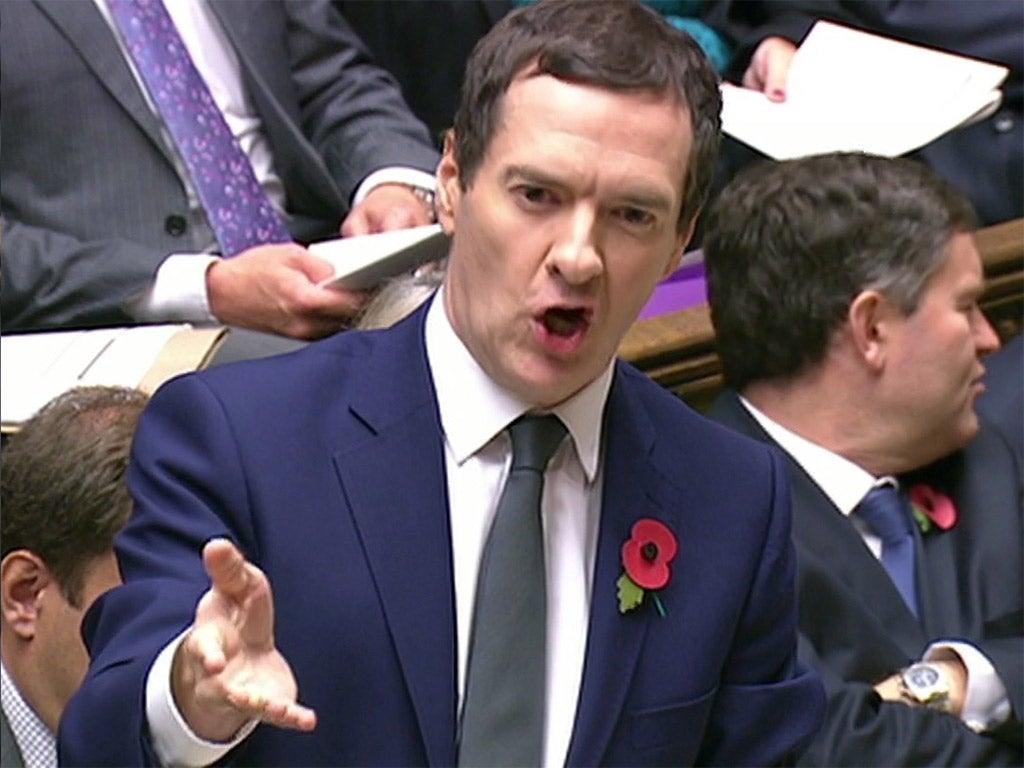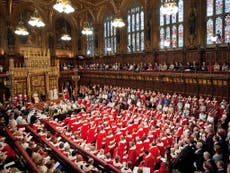Tax credits: House of Lords has done the Government an enormous favour by rejecting George Osborne's cuts
The upper house has performed its role admirably – and may have saved the Tories from themselves

Though none of them may realise it yet, the House of Lords’ rejection of the Chancellor’s cuts in tax credits has done the Government an enormous favour. The Lords, and for that matter the Government’s internal critics in the Commons, always had the better of the argument. It will do ministers no harm to look again at an undercooked plan.
No longer, to use that clichéd phrase, will “hard-working families” be receiving letters from HMRC just in time for Christmas, detailing precisely how much worse off they will be. No longer will ministers have to argue the unarguable and insist, against all the evidence, that their other changes, in childcare and the living wage for example, will compensate for the loss of tax credits. And no longer will the Chancellor and Prime Minister face defeat in the Commons, with a Tory rebellion led by a gloating Boris Johnson.
Still, the debacle has left No 10 looking for vengeance. That is understandable. It is expected of the upper house not to interfere in matters of taxation and public spending. But the Lords do have some constitutional conventions on their side: they are bound to pass any measures that appear in the manifesto of a successfully elected party. The cut to tax credits, of course, did not.
In fact it might be asked whether the Conservative victory would have been so large had the electorate been made aware of what was to come – the Chancellor was certainly asked enough times where exactly he proposed to find £12bn in savings from the welfare budget. The Lords have in this case performed their role well, and it was particularly important that they did so, given how the Government attempted to sideline the Commons by presenting the reform as a statutory instrument and not something requiring the oversight of Parliament.
Jeremy Corbyn and John McDonnell have won an early victory few expected; but a further irony is that had the opposition parties allowed the measure to go through the Lords, and had it survived the Commons (not a certainty), then it would have damaged the Government grievously and thus aided the Labour Party’s own longer-term revival.
The Tories’ claim to be the “party of the workers” – already damaged – would have gone through the shredder. This reversal stands as a blow to the leadership ambitions of Mr Osborne, a man who many considered a shoo-in for the top job just weeks ago. But a crisis over the implementation of the cuts might even have ended Mr Osborne’s chancellorship. Things, in other words, might have been even worse for the Tories.
Now, though, the Lords have given ministers space to do what they should have done in the first place, and find a suitable transitional arrangement, just as they did with Iain Duncan Smith’s universal credit plan (and who would have thought IDS could teach Mr Osborne a political trick?). The Lords themselves, buoyed by public support, may not be punished that easily by David Cameron, now apparently back in “Flashman” mode.
Talk of a constitutional crisis was always overblown; the political crisis over tax credits, though, was very real indeed.


Join our commenting forum
Join thought-provoking conversations, follow other Independent readers and see their replies